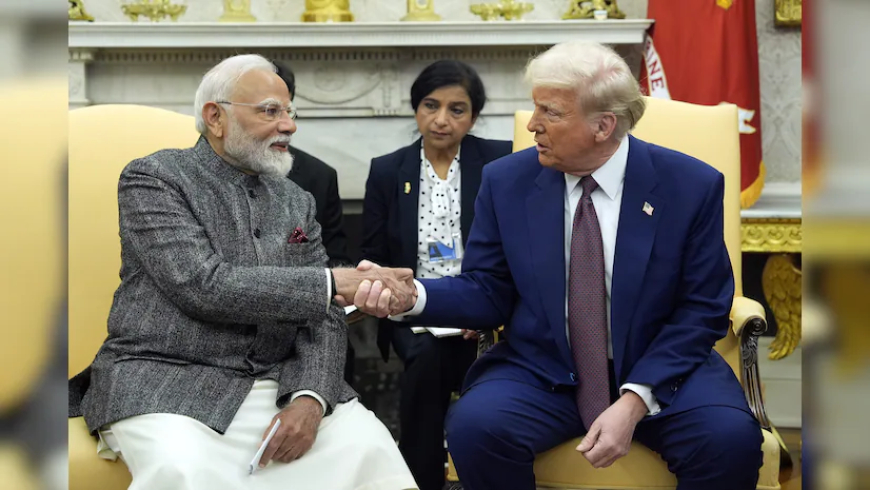New Delhi/Washington: In a significant development, India and the United States have reportedly finalized the terms of a bilateral trade deal just before the imposition of new tariffs by the Trump administration, which are set to take effect on April 2. The deal comes as a result of intense negotiations and high-level interventions from the Prime Minister’s Office (PMO).
According to an Indian Express report, the Indian government, led by Prime Minister Narendra Modi, has agreed to the Terms of Reference for the Bilateral Trade Agreement. The deal was finalized after strategic discussions aimed at mitigating the potential impact of the tariffs, which could have severely affected various sectors of the Indian economy.
While the specifics of the deal remain confidential, it is expected to lead to a paradigm shift in the trade dynamics between the two countries. U.S. President Donald Trump had previously emphasized the need for reciprocal tariff reductions, expressing hopes that India would slash its tariffs. The Indian government’s swift response to the looming deadline indicates the importance of maintaining robust trade relations with the world’s largest economy.
Reports suggest that the U.S. had been seeking near-zero tariffs, with key sectors like dairy, communications, and agriculture under focus. India, however, aimed to protect its strategic interests while striking a balance with the U.S. demands.
Despite the deal, certain sectors remain vulnerable to the effects of the tariffs. Industries such as alcohol and spirits are expected to face the highest tariff hike, with rates soaring to 122.10%. The dairy industry is also at risk, with a 38.23% tariff potentially impacting exports.
Additionally, sectors like meat, fish, processed seafood, live animals, processed foods, sugar, cocoa, footwear, and jewelry (including diamonds, gold, and silver) may face increased tariffs, affecting both exporters and consumers.
The India-U.S. trade deal holds significant implications not only for bilateral relations but also for the global economic landscape. As the world watches, this agreement could set a precedent for future trade negotiations and influence economic strategies across international markets.
With the deadline for the new tariffs fast approaching, the finalized deal offers a sigh of relief for businesses and stakeholders on both sides, highlighting the importance of diplomacy and strategic economic partnerships.




 Previous
Article
Previous
Article











